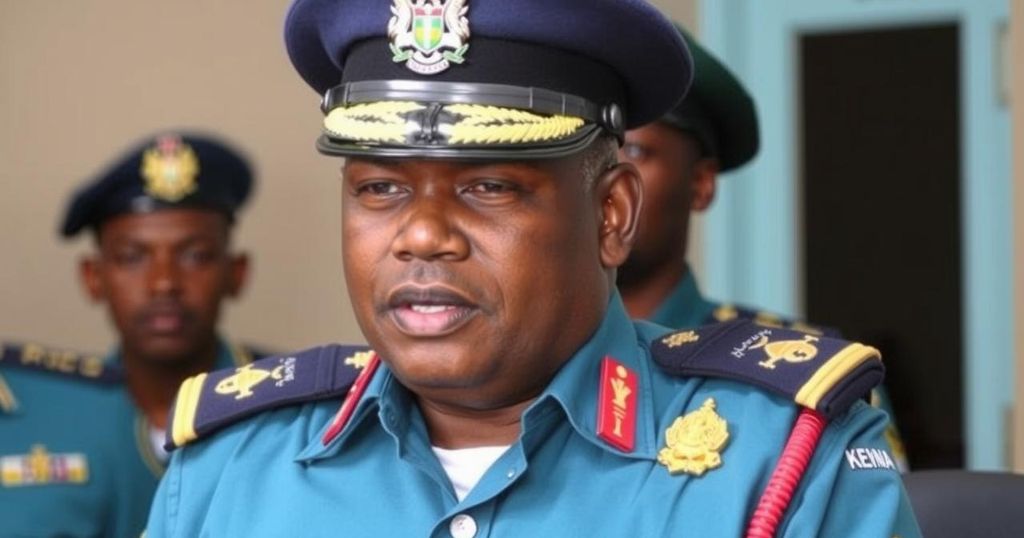Kenya Police Chief Dismisses Claims of Unpaid Salaries for Haiti Peacekeepers

Kenya’s Inspector General of Police, Douglas Kanja, denies reports of unpaid salaries for officers in Haiti, asserting that payments were made through October. This clarification comes in response to media allegations claiming officers had not been compensated for three months.
In response to allegations circulating in Kenyan media, Douglas Kanja, the Inspector General of Police in Kenya, has firmly denied claims that officers deployed in the United Nations-supported peacekeeping mission in Haiti have not received their salaries for the past three months. Mr. Kanja clarified that the payment for these officers has been processed through the end of October, thus countering reports of financial distress among them. The denial comes amidst growing concerns regarding the treatment and compensation of peacekeeping personnel deployed abroad.
Kenyan police officials have been under scrutiny as reports emerged from various sources indicating that personnel stationed in Haiti had not been compensated for an extended period. Such circumstances raise significant issues regarding the welfare of officers serving in international peacekeeping roles. Inspector General Kanja’s statements seek to alleviate concerns surrounding the officers’ financial stability while reinforcing the commitment of the Kenyan authorities to support their deployed personnel.
It is essential to understand the context of Kenya’s role in international peacekeeping, particularly in regions such as Haiti, where security challenges are prevalent. The deployment of Kenyan officers enhances the effectiveness of multinational efforts to provide stability and protection in conflict zones. However, personnel morale and operational efficiency can be severely impacted by payment irregularities, highlighting the necessity for clear communications and timely compensations.
“The officers in Haiti have been paid up to the end of October.” – Douglas Kanja
The Inspector General’s remarks serve as a reminder of the importance of maintaining operational integrity and supporting the dedicated men and women who serve in peacekeeping missions. Consequently, it is vital for the relevant authorities to ensure that these officers receive their salaries punctually to uphold their morale and commitment to service.
In conclusion, the assertions made by the Inspector General elucidate that Kenyan officers in Haiti have received their salaries through the end of October. His response effectively addresses the concerns raised by deployed personnel and underscores the importance of providing ongoing support to those engaged in international peacekeeping efforts. These developments highlight the significance of maintaining clear and transparent communication regarding officers’ compensation while reinforcing the broader commitment to safeguarding peace globally.
Kenya has been an active contributor to international peacekeeping missions, particularly under the auspices of the United Nations. The financial remuneration and support for these personnel are crucial to their effectiveness and wellbeing while serving in volatile areas like Haiti. Recent reports alleging unpaid salaries for Kenyan officers in Haiti have drawn attention to the potential implications such issues could have on their morale and operational effectiveness. This situation underscores the need for prompt and regular payments to ensure the welfare of deployed officers, thereby maintaining the integrity of the peacekeeping missions.
In summary, Inspector General Douglas Kanja has refuted claims that Kenyan officers serving in the UN peacekeeping mission in Haiti have gone unpaid for three months. His assurance that payments have been made through the end of October aims to quell concerns regarding personnel welfare. Supportive actions and clear communication are vital for sustaining the morale and operational efficacy of peacekeeping forces in challenging environments.
Original Source: www.thespec.com








